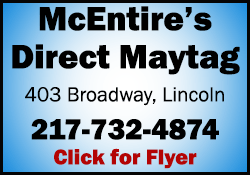|
 In addition, over a third have at least one industry official on
their governing board and, in 12 percent of the 104 organizations
analyzed, an industry official was listed as leading the governing
board. In addition, over a third have at least one industry official on
their governing board and, in 12 percent of the 104 organizations
analyzed, an industry official was listed as leading the governing
board.
The tally raises concerns about potential conflicts of interest
among groups that claim to be looking out for the best interest of
patients but whose advocacy may be influenced by industries that
have a financial interest in certain treatments.
"Concerns have been raised that industry-supported patient-advocacy
organizations have spoken out for access to drugs with questionable
therapeutic benefit and remained silent on policy proposals, such as
drug-pricing reforms, that might benefit their constituents," the
research team from the University of Pennsylvania in Philadelphia
writes in the New England Journal of Medicine
The influence might be even more extensive than the numbers suggest,
say the authors, led by Matthew McCoy, a postdoctoral fellow in the
university's department of medical ethics and health policy.
Some of the 104 groups, all with annual revenues of more than $7.5
million, don't publish detailed information on their sources of
revenue or members of their governing board.

What was available showed that at least 39 percent of the
health-oriented public advocacy groups each got a least $1 million a
year from industry.
The websites of only 12 percent of the organizations posted
conflict-of-interest policies for managing such potential problems.
The findings don't necessarily mean that the organizations have been
compromised, McCoy told Reuters Health.
"I don't want to impugn them," he said. "But I think we have a right
to know more. If an organization receives more than 50 percent of
its support from a drug or device company, I might take what they
say with a grain of salt."
The groups ranged from the New York-based Child Mind Institute which
was the only organization of the 104 that explicitly says it does
not accept industry support, to the National Hemophilia Foundation,
whose 2014 annual report indicates that it received 50 percent to 83
percent of its annual revenue from drug or device companies. (Like
many organizations, the foundation only reported donations in a
range of dollars.)
The foundation responded to Reuters Health with a statement saying
that industry officials are prohibited from serving on its board and
the organization "has never and will never advocate for any single
treatment or group of treatments before legislators, or public and
private payers. Instead, NHF advocates for all FDA-approved
therapies, and will continue to fight to ensure that individuals
with bleeding disorders have access to the therapies they need."
[to top of second column] |

Eighteen groups didn't report getting money from industry, but 13 of
those provided no donor information at all.
Of 59 groups that reported the amounts of their donations, 11
received at least 10 percent of their financial support from
industry donations.
They included the American Diabetes Association, the Epilepsy
Foundation, the Arthritis Foundation, the National Kidney
Foundation, and the National Hemophilia Foundation.
The groups that responded to a Reuters Health inquiry said those
donations don't influence policy.
For example, the Kidney Foundation, in a statement, said that
although it does accept financial support from industry, "this
support does not drive policy positions, priorities, mission or
objectives" and the sole industry member on its 24-member board is
prohibited from voting on matters related to that person's business.
Arthritis Foundation president Ann Palmer released a statement to
Reuters Health saying, "Our corporate partners pay to sponsor events
and tools. To keep the needs of people with arthritis at the center
of what we do, the Foundation makes advocacy and position decisions
independently - our corporate partners do not shape our agenda or
advocacy efforts."
The organization would not allow industry members to be on its
governing board, she said.
(In para 15 of this version of the story, the Alzheimer's Disease
and Related Disorders Association has been removed from the list of
organizations that receive at least 10 percent of their financial
support from industry donations.)
[© 2017 Thomson Reuters. All rights
reserved.] Copyright 2017 Reuters. All rights reserved. This material may not be published,
broadcast, rewritten or redistributed.

 |